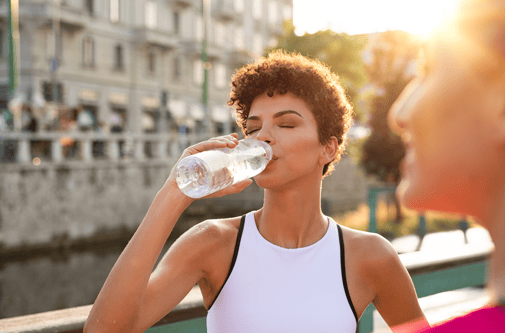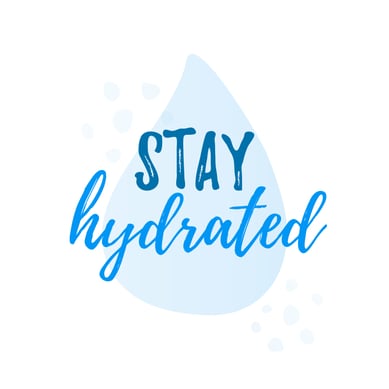
Greetings NIFS friends and fitness aficionados! As warmer days come, we will be subject to higher instances of dehydration. This might seem fairly obvious and straightforward, but what really happens to your body, namely your kidneys, as you reach these states of dehydration? We are told to drink “x” amount of water every day, but is that right for everyone? How does taking supplements effect our kidneys, especially when we do not have enough water? What can we do to help alleviate the effects of dehydration and protect our kidneys from chronic kidney disease? Taking time now to address these concerns will help keep you healthier as you get older.
 What Do Your Kidneys Do?
What Do Your Kidneys Do?
You might be asking yourself, “What’s so special about kidneys?” The answer to this can be found at the National Kidney Foundation website. Basically, your kidneys allow your body to remove excess waste and fluid from the body via the bloodstream, help in regulating blood pressure, create red blood cells through erythropoietin, keep your bones healthy through processing vitamin D with calcium and phosphorus, and keep your body’s pH levels balanced so that you don’t become too acidic. So, nothing major right? The importance of your kidneys cannot be overstated, and keeping them safe should be a priority.
How Does Dehydration Affect Your Kidneys?
For starters, one of the main kidney functions involves removing waste from the body (this is a filtration process through urination). When there is a lack of water, a buildup of this “waste” happens. This could lead to kidney infections, kidney stones, and even kidney failure. To prevent all of this, adequate water intake is a necessity. Many sites, such as The Mayo Clinic, suggest roughly 8 glasses of water (closer to 3.7 liters for men and 2.7 liters for women) while other reputable sources, such Dr. Roxanne Sukol at The Cleveland Clinic suggest, “Your size, activity, metabolism, location, diet, physical activity and health all factor into how much water you need.” Basically, your needs will vary depending on the situation (if you sweat a lot, you may need to drink more than someone who doesn’t sweat as much).
How Can Supplements Affect Hydration?
Dietary and workout supplements vary in nature and are rarely regulated by any government agency. This being said, the components in our supplements, such as a pre-workout drink, may contain an immense amount of caffeine. Caffeine has been proven to cause dehydration in the body. With this dehydration, any other substances that need to filter through the kidneys have a harder time processing and the filtration process becomes more and more taxed. At some point, the initial dehydration becomes a huge problem. The safest bet, if you are using any supplements, is to make sure you are always drinking ample amounts of water and staying within the recommended serving sizes noted on the container.
Are You Dehydrated?
If you are unsure that you are drinking enough water, there are several tests to see whether you are dehydrated. Over-the-counter urine sample tests are designed to tell whether you are dehydrated. If you do not have access to these tools, you can use thirst as an indicator (although thirst is the afterthought of dehydration and you should drink up before this occurs). Drinking the recommended daily amounts of water per day might seem like a daunting task, but you can use strategies to create an interval so that you don’t drink all your drinks at once.
Where Can You Get More Information?
There is so much to gain from taking care of your kidneys. Your health, happiness, and life depend on it. For more information about taking care of your kidneys and advice about incorporating water into your daily regimen, contact a NIFS Fitness Specialist at 317-274-3432 ext. 262, or reach out via email at tlivegnood@nifs.org.
Thank you for reading… muscleheads rejoice and evolve!
This blog was written by Thomas Livengood, NIFS Health Fitness Instructor and Personal Trainer. To learn more about the NIFS bloggers, click here.

